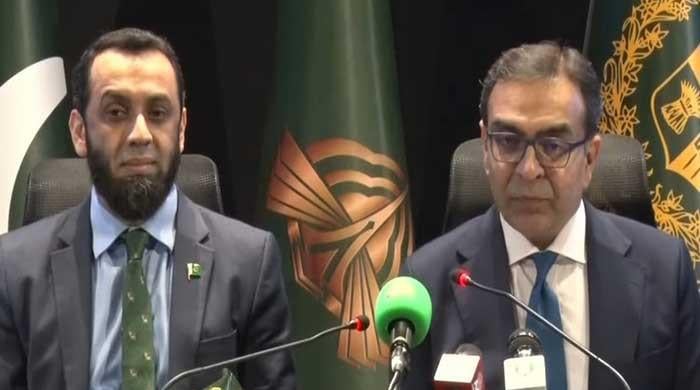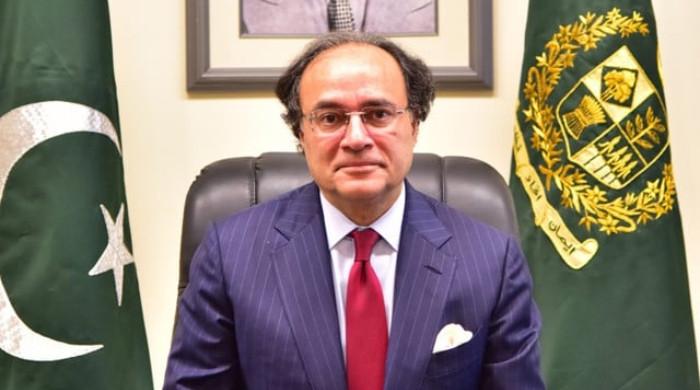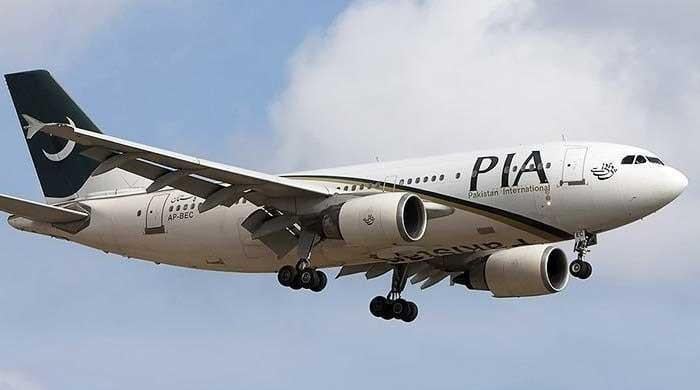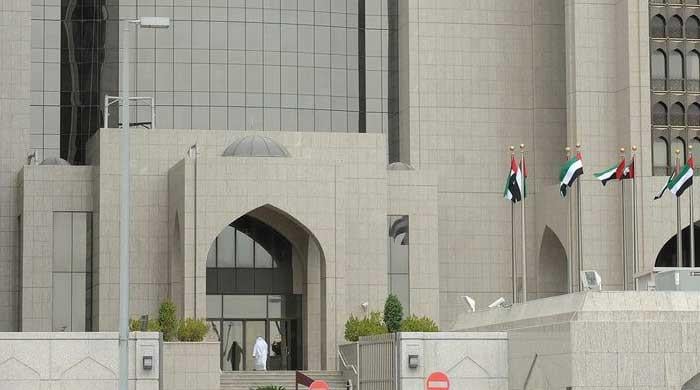'Great Debate': Power minister says govt, IPPs on same page to reduce power prices
Former caretaker minister Gohar Ejaz says some IPPs raking in Rs260 million each without generating power
October 06, 2024
Federal Minister for Energy (Power Division) Awais Leghari on Sunday said there was a consensus between the government and Independent Power Producers (IPPs) to reduce electricity prices, as financially-challenged consumers struggle with unaffordable tariffs and little hope for immediate relief.
Leghari, along with sector officials and an economist, addressed the contentious issue of agreements with Independent Power Producers (IPPs) that allow them to earn profits without generating any electricity, during Geo News's talk show "Great Debate: Pakistan Kay Liye Kar Dalo".
In the debate anchored by senior journalist, analyst and anchor Shahzad Iqbal, power minister addressed the growing public outcry over skyrocketing electricity bills and the ongoing debate surrounding capacity payment charges (CPC) to IPPs.
With rising inflation and energy costs, nearly all participants, including prominent entrepreneurs, were on the same page regarding the fact that it was high time to reconsider the current arrangements.
The power minister acknowledged the need for a thorough review of these agreements, hinting that the government was open to exploring ways to renegotiate terms with IPPs to bring some relief to consumers.
Hubco CEO Kamran Kamal, Lucky Electric Power CEO Rohail Muhammad, FPCCI Vice President Asif Inam, former caretaker minister Gohar Ejaz, and Economist Ammar Habib Khan added their voices, stressing the urgency of reforms.
Former caretaker minister Gohar Ejaz said that they were all on
the same page that they must save and run Pakistan, adding that farmers and industrialists were frustrated due to high electricity prices.
Referring to the latest consumer price index (CPI) numbers, Ejaz said the rate of inflation did not decrease, it only slowed down.
“If electricity consumption drops, capacity payments will rise further,” Ejaz warned adding “We were paying to those five plants that were not producing power.”
He also pointed out that these IPPs were raking in Rs260 million each without generating power, and also revealed a $60 million worth of wind power project was installed for $120 million, burdening the national exchequer.
Hubco's CEO Kamran Kamal stated that after the load-shedding in the 1980s, a master plan was made in 1992 and later in 1994, the world's top companies invested in Pakistan.
Kamal further shared that after investing in the country his company remained embroiled in 14 court cases for three years.
He said, "If we breached the agreement with the government of Pakistan, we are at fault."
According to Lucky Electric Power's CEO Rohail Muhammad, new plants have higher tariffs initially, but these tariffs will decrease over 30 years. Muhammad added that discussions about old, underperforming plants were already held in 2020.
During the discussion, Leghari emphasised that IPPs and the government agreed that electricity prices needed to be reduced. He also pointed out that shutting down five plants would reduce costs by 65 paisas.
“For the first time, distribution boards have been formed without political interference,” the power minister said.
Expanding on his argument, Ejaz highlighted that 16% of electricity was lost in transmission and that fuel costs were Rs10 per unit, while the production cost of each unit was Rs35.
Kamal further said: “10,000 megawatt plants have been installed in the south, but only 2,000 megawatts have been transmitted from north to south over the past two years.”
He explained that capacity payments were a global phenomenon but differed in structure from country to country.
Lucky Electric’s Mohammed noted that no tenders had been submitted for the government’s 600-megawatt solar project.
Asif Inam, FPCCI Vice President, stated that the country's biggest problem was capacity payments.
Responding to the FPCCI official, economist Ammar Habib Khan said that capacity payments were being villainised and they actually increased due to the rupee’s devaluation.
Emphasising the need to reprofile local debt in the power sector, Leghari said that talks with IPPs began a few months ago, and the government was reviewing the tax structure.
However, Ejaz concluded by saying that some plants had already cleared their debts and taken returns as high as 2,000%.
The government is in a catch-22 situation. The high cost of electricity has become a contentious political issue, with opposition parties leveraging public dissatisfaction to criticise the incumbent government’s handling of the energy sector.
Analysts say that the political implications of the controversy surrounding capacity payments to IPPs are equally significant.
The burden of high electricity tariffs falls disproportionately on the middle and lower-income segments of society, fueling public outrage and eroding trust in the government’s ability to manage the economy.
The controversy also exposes the challenges of governance and accountability in Pakistan's energy sector.
Addressing these governance issues is crucial for restoring public trust and ensuring the sustainable development of the energy sector.
A successful renegotiation with both local and international IPPs would drastically reduce tariffs, boost industrial competitiveness, and increase public trust in the government's ability to effectively manage the economy.
On the other hand, a failed renegotiation could multiply the tariffs, bringing the government and consumers under added financial strain, crippling industry, and fanning the public unrest.
Any populism-driven deviations from International Monetary Fund (IMF) terms under the current $7 billion loan programme will not bode well for the country’s macroeconomic stability.
A status-quo in the situation, would however lead to the government scrambling for quick fixes to defuse the growing public anger without actually solving the problem once and for all.









